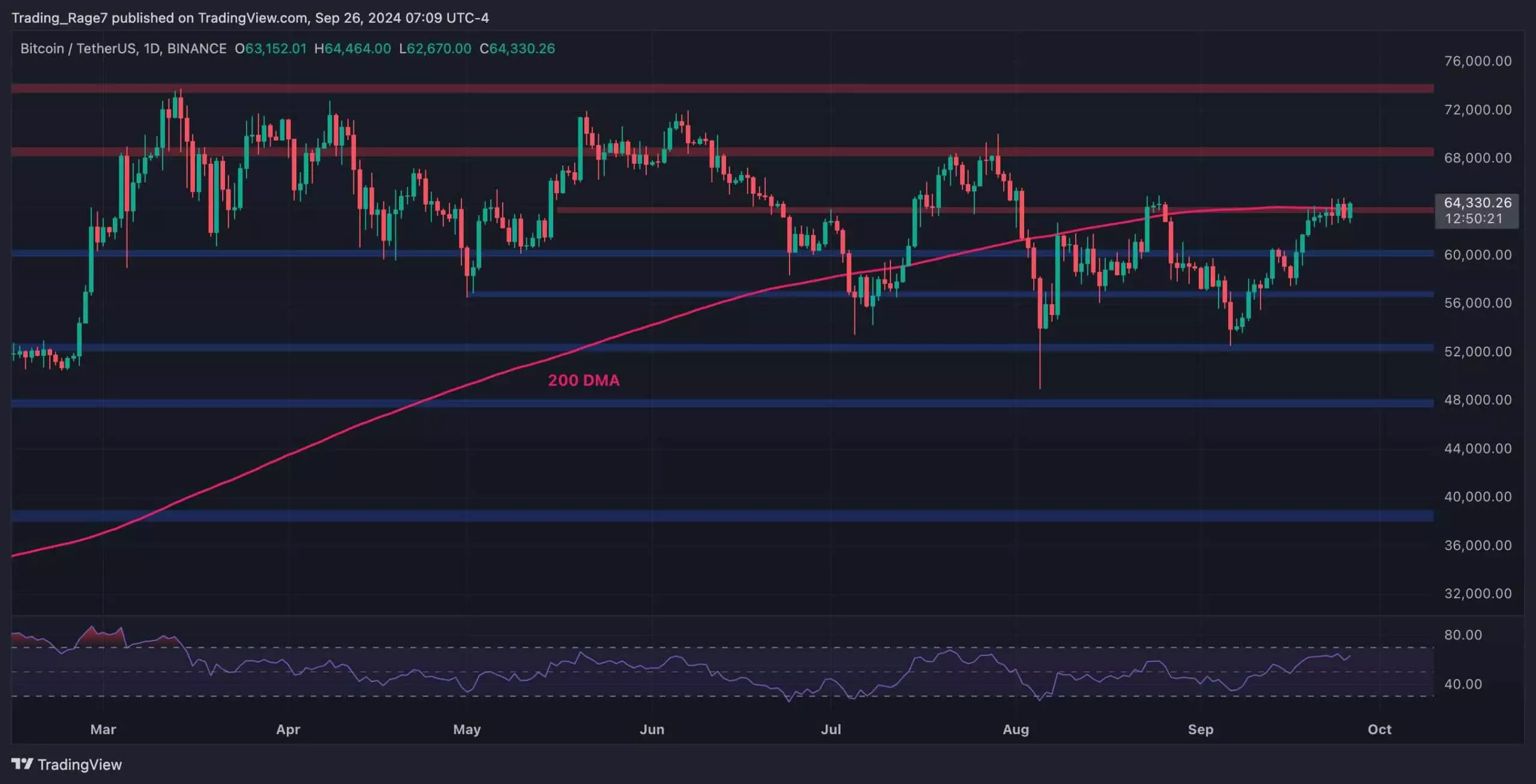Bitcoin (BTC), the highest-profile cryptocurrency, finds itself at a crucial juncture that could greatly influence its trajectory in the coming weeks. After experiencing a robust rally, bouncing back from a support level at $52,000 to eventually break through significant resistances at $56,000 and $60,000, Bitcoin’s current price stagnation around $64,000 is a focal point of market analysis. This level is not just psychologically significant; it also aligns with the 200-day moving average, a key technical indicator that traders closely monitor. If Bitcoin manages to sustain momentum and breaks through this resistance, the potential for a bullish rally toward new highs could rapidly materialize.
Conversely, the cryptocurrency marketplace is notorious for its volatility. Should Bitcoin be rejected at this critical level, the cryptocurrency might not find sufficient buoyancy at the $60,000 mark, potentially leading to a downward spiral. Such a scenario could initiate a classic bearish reversal pattern, eliciting further panic among investors. Therefore, navigating this price point will be central to evaluating whether Bitcoin will sustain its bullish momentum or succumb to a bearish trend.
Market Indicators and Short-Term Holder Behavior
Adding another layer to this complex market scenario is the behavior of short-term holders. As Bitcoin underwent consolidation and minor corrections, reactions among these investors showcased a typical fear-driven response. Many chose to sell their holdings, even if it meant realizing losses. The Short-Term Holder Spent Output Profit Ratio (STH SOPR), a metric used to gauge the profitability of short-term holders, illustrates a troubling trend: following the initial peak at $70,000, this ratio has substantially declined, indicating that many have been locking in losses rather than profits.
In bull market phases, such profit realization can be a standard practice; however, it quickly transmutes into a double-edged sword. What becomes worrisome is the risk that the ongoing selling pressure might not be offset by adequate demand. This imbalance could lead to a more chaotic market environment, where prices are further suppressed. As more short-term holders sell to recoup losses, if demand fails to absorb supply adequately, we could see a sharp decline in prices.
The Path Forward: Demand and Market Sentiment
Thus, the immediate future of Bitcoin revolves around demand and sentiment in the market. Should bullish momentum and positive sentiment prevail, we may witness a spectacular climb, even reaching for the $70,000 milestone. However, for Bitcoin to solidify its position and channel the power of a bullish breakout, it must navigate the current resistance levels with precision.
The upcoming stages in Bitcoin’s price action will undoubtedly reflect broader market sentiments. Investors would do well to keep an eye on trading volumes and market reactions, particularly around critical support and resistance levels. Overall, Bitcoin stands at an intersection of potential growth and risk; the coming days could either herald a new era of profits or usher in a wave of cautious selling and declining prices. Traders must remain astute, factoring in both technical indicators and the shifting psychology that defines this fast-paced market.

